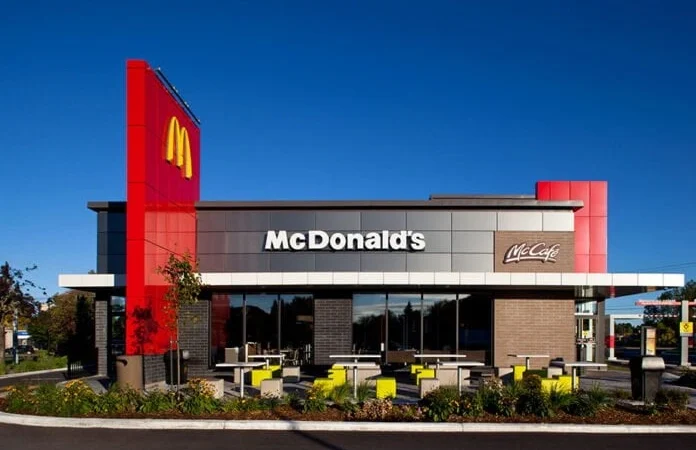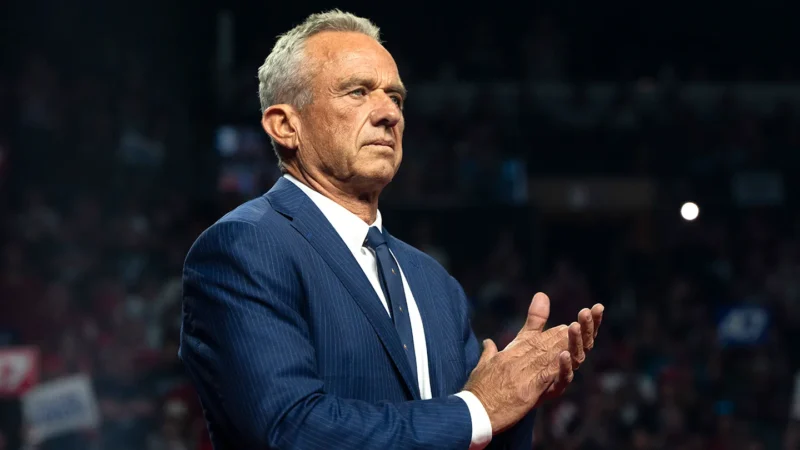McDonald’s and Big Brands Cash In as Low-Income Shoppers Struggle to Keep Up

Some of America’s top corporations are acknowledging that their customers are feeling the pressure as inflation continues to push prices higher.
Inflation has been a central topic in corporate America since the pandemic prompted relaxed monetary policies and trillions in Covid relief. Although the pace of price increases has slowed since the Federal Reserve began raising interest rates in early 2022, consumers are still struggling, often cutting back on spending as costs continue to rise.
“It is clear that broad-based consumer pressures persist around the world,” said McDonald’s CEO Chris Kempczinski during the company’s earnings call on Tuesday. “Consumers continue to be even more discriminating with every dollar that they spend as they faced elevated prices in their day-to-day spending.”
Persistent inflation has clouded how many Americans view the economy. Consumer confidence in April dropped to its lowest level since mid-2022 as high prices remained top of mind, according to the latest data from the Conference Board released on Tuesday.
While wages have continued to grow, as shown by first-quarter employment cost data released on Tuesday, the prices paid by average consumers have also increased, eating into the extra income from those higher wages.
To be sure, inflation has dropped significantly. The consumer price index, which tracks a broad basket of goods and services, increased by 3.5% in March compared to the same month the previous year.
Although this is much lower than the 40-year high of 9.1% seen in mid-2022, it still remains above the Federal Reserve’s 2% target, with Fed officials pointing to persistent inflation as the reason for keeping interest rates high.
This ongoing 3.5% annual increase is dampening economic sentiment: Even after a period of high inflation, prices aren’t falling, creating problems for McDonald’s and other companies serving customers now dealing with sticker shock.
‘Under Pressure’
At McDonald’s, this reality showed in same-store sales growth coming in slightly below Wall Street expectations. Kempczinski emphasized that the company must stay “laser-focused” on affordability to attract diners, especially as higher prices continue to push away low-income consumers.
Executives at 3M, the company behind products like Scotch tape and Post-it Notes, echoed these concerns. On their earnings call Tuesday, 3M reported “continued softness in consumer discretionary spending.” Despite surpassing earnings forecasts in the first quarter, the company expects consumer spending to remain “muted” this year.
Newell Brands’ CEO Chris Peterson also pointed to inflation as a major issue during an April 26 call. Although the owner of Coleman and Rubbermaid products exceeded first-quarter projections, the company issued conservative guidance for the current quarter, forecasting a possible revenue decline. “The categories we compete in remain under pressure with consumers continuing to carefully manage their discretionary spend as the cumulative impact of inflation on food, energy, and housing cost has outpaced wage growth,” Peterson said.
However, not all consumer-facing companies are feeling the strain.
Colgate-Palmolive’s CEO Noel Wallace mentioned on April 26 that their volume growth had largely returned as “inflation became more benign and as pricing started to stabilize.”
Coca-Cola’s executives observed a shift toward value, acknowledging that the purchasing power of low-income consumers has been hit. However, they said that the American consumer, across all income levels, “remains in good shape.”



